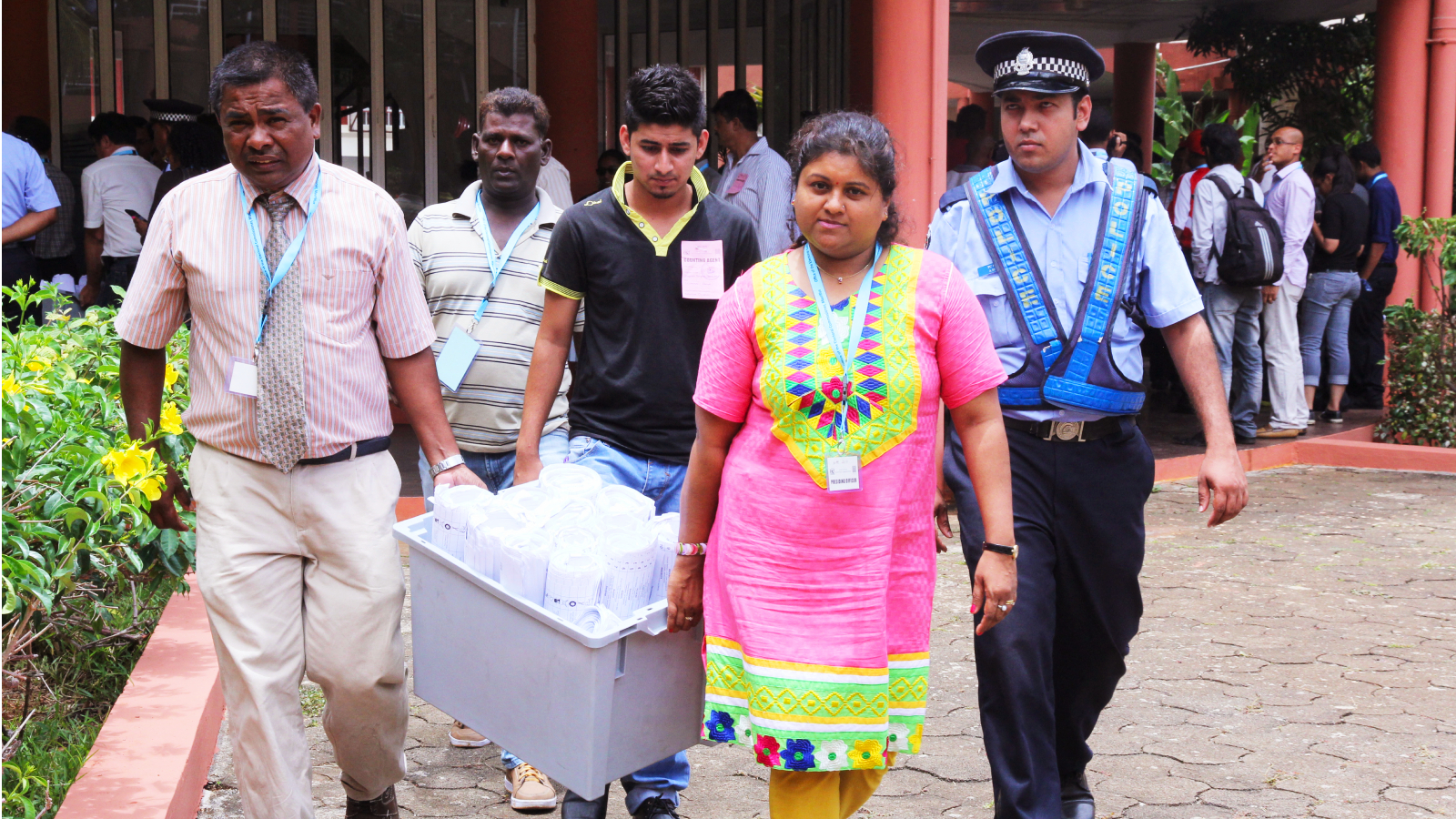Mauritians will head to the polls on November 10 for their 12th general election since independence. As leaders of the People’s Alliance coalition, the ruling Militant Socialist Movement (MSM) is seeking to retain its majority and afford Prime Minister Pravind Kumar Jugnauth a new 5-year term.
The Alliance for Change coalition, comprising the Labour Party and the Mauritian Militant Movement, is the main rival to the MSM’s continuation in power. Power has alternated between the three main parties over the years, though the MSM has won the past two elections and led the government since 2009.
Mauritius is considered one of Africa’s strongest democracies.
Mauritius is considered one of Africa’s strongest democracies. Nearly 90 percent of Mauritians voted in the 2019 general elections. Mauritius has one of the most open media environments on the continent. Leaked recordings in the weeks before the election of private telephone conversations of opposition politicians dating back to 2019 have sparked allegations of wiretapping. This, in turn, has led the government to block social media platforms in the lead-up to the election, introducing unanticipated drama to the polls.
Mauritius’s stability and strong governance credentials have made it a popular destination for financial investment and tourism. This has translated into high-quality health care, increased educational opportunities, and a 22-percent increase in per capita income over the past decade. Parties compete over how to better deliver services to their constituents.
While the opposition has campaigned on rising prices, the economy—including the important tourism sector—has rebounded solidly after the pandemic. Youth unemployment has declined significantly in the past year, likely maintaining the MSM’s strong support in rural areas.
Politics is dominated by two family dynasties—the Ramgoolams (linked to the Labour Party) and the Jugnauths (linked to MSM). This has led to periodic charges of nepotism such as when Pravind Jugnauth took over as prime minister from his father in the middle of his term in 2017, before leading MSM to victory in the 2019 election.
The Electoral Boundaries Commission enjoys the trust of a strong majority of Mauritians and a reputation for impartiality. The 2019 election saw isolated cases of irregularities such as citizens not being able to vote because their names were not found on voting registries, which have led to court challenges. In its election observer report, the African Union offered recommendations including reforming political party and candidate finance law, enacting laws designed to increase the number of female candidates, increasing the participation of civil society in elections, and updating procedures for ballot counting. The EBC will be under more scrutiny to improve the administration of the 2024 polls.

Election workers in Mauritius transfer ballot boxes after parliamentary polls. (Photo: AFP)
While Mauritius enjoys relatively robust rankings on Transparency International’s Corruption Perceptions Index, there are concerns that corruption has increased in recent years. Threats from organized criminal networks and money laundering have also grown as the financial services sector has become a more significant component in the Mauritian economy. In response, the government has strengthened its capacity for tracking illicit financial activities and the Bank of Mauritius launched a Market Intelligence Cell to monitor the financial sector for irregular or suspect transactions.
Mauritius heads into the 2024 elections on a solid foundation. Continued progress over the course of these polls will be key to Mauritius maintaining its reputation as an accountable and capable democracy.


 Mauritius: November 10
Mauritius: November 10